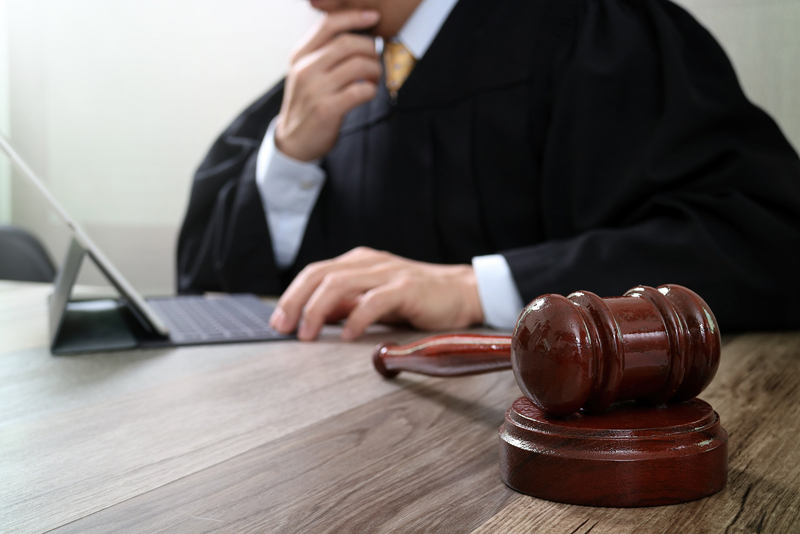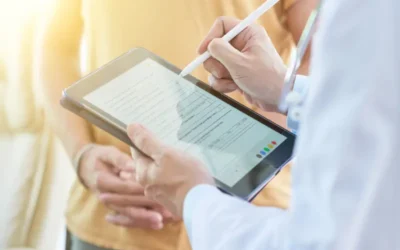Are remote depositions feasible? The current hiatus brought about by the coronavirus epidemic has forced most organizations, including companies like ours providing medical review services, to work remotely so as to continue business functioning and customer service. Opinions differ regarding the feasibility and efficacy of remote depositions. But these could soon become the norm even after COVID-19 makes an exit. Now we have highly sophisticated and effective audio, video, recording and transcription technology that makes remote working a breeze. These are already making solid impact on how courts and attorneys work. Courts now allow telephone conference calls in place of personal appearances for case management conferences and motion hearings among other legal processes, as a jdsupra.com article points out. Remote conferencing via video enables attorneys to communicate with their clients irrespective of their location. Remote depositions could very well replace in-person depositions in a short time. The health emergency we are experiencing now has pushed most businesses, including legal businesses, to explore the many advantages offered by technology.
All 50 states and the Federal Rules of Civil Procedure allow remote depositions via video conference or telephone. There may be slight differences among jurisdictions regarding the procedure and circumstances under which remote depositions are allowed. When deciding to use remote deposition, attorneys need to follow some best practices to ensure that everything goes smoothly and securely. Let us look at some of the major considerations.
- Before the deposition: There are certain things you should do before a deposition. Start preparing for the deposition at least a week ahead to make sure everything functions smoothly.
- A formal notice of deposition must be sent to all parties involved, including the witness. This notice must clearly state that you would like to conduct the deposition via video conference, and also mention the recording method.
- If the court reporter is not with the deponent, all parties should stipulate that the oath may be taken remotely. However, many states are waiving this requirement now.
- Notify your client and invite them to participate in the deposition process. The advantage of remote depositions is that clients can attend the procedure without being seen or heard by others and thereby minimize any disturbance their presence could provoke. Clients could have some valuable insight that could support the attorney’s efforts. They could even identify flaws in the testimony and evaluate the credibility of the witness.
- Pre-mark all exhibits and send them to all parties ahead of the deposition proceeding. Alternately, you can share them on your screen at the deposition.
- Use robust technology: The latest technology is vital when conducting a remote deposition. Before the deposition, test this technology to ensure there are no hitches.
- Familiarize yourself with the remote streaming technology: This is vital because unfamiliarity with any aspect could have a negative impact on the entire process.
- Diverse streaming technologies with options for video, audio, streaming exhibits, and streaming text are available. You must determine how many streamed feeds you would need. Other important considerations include: how the audio should be run – through the computer or via phone; and whether exhibits can be introduced through the remote platform.
- Your location may be experiencing limited bandwidth and there may be multiple users streaming at the same time. The best practice in such a scenario is to stream the video feed and listen to the audio on the phone. Mute the computer audio for less noise and better clarity.
- When listening to the witness, attorneys should ideally mute their phone/computer to eliminate extraneous noises from interfering with the witness audio.
- Turn off all notifications on the device you are using. This will help maintain an uninterrupted stream.
- Ideally, rather than Wi-Fi, use a hardwire connection to the internet.
- There should be a clear and uninterrupted view of the deponent. This is to ensure that the trial attorney is able to view the deponent clearly and evaluate his or her truthfulness and reliability through their body language and physical cues when responding to questions.
- Ensure professionalism: Though done remotely, this is a formal legal proceeding and must be professionally handled just as an in-person deposition. So, select the background carefully to ensure zero distraction. Make sure that you wear business/business casual attire.
- Manage exhibits professionally: If you are using digital exhibit management for the first time, you have 2 options to choose from – remote management or participant management.
- Remote management: Your professional videographer will display the exhibits as directed. Also, they would ensure availability to the reporter for on-the-record marking and inclusion.
- Participant management: You can manage exhibits on your own by sending them electronically to all parties involved, ahead of the deposition.
Based on specific deposition needs or any concerns such requirements could cause the deponent or client, it is best to defer to the court reporter any issues related to exhibit management.
- Prepare your witness thoroughly: When working remotely, witnesses may feel uncertain regarding their preparation. Conduct a mock deposition and include the witness in it. Ensure that the witness understands how he/she can send you a private message and also how to address the room. Also, instruct your witness as regards framing their webcam and muting their microphone.
- Regarding raising objections: Raising objections to inappropriate questions is an important part of the deposition process. When conducting remote depositions, this could result in attorneys talking over one another on the video feed to maintain their objections. Moreover, limitations in video conferencing technology may prevent multiple participants from talking at the same time. This could lead to an attorney assuming that an objection was indeed raised, but not recorded by the stenographer. To avoid such concerns, there could be an agreement/stipulation between counsel that one objection raised by one party applies to all other parties, as a post on whiteandwilliams.com suggests. They also suggest another option, namely, a pre-arranged physical signal on the video feed, such as a simple raise of the hand to indicate that an attorney has an objection before the witness answers.
- Transcript streaming in real time: Remote depositions allow having a live feed of the deposition transcript as the court reporter types. Attorneys can utilize professional word processors to bookmark topical areas of questions and answers, insert comments, and run keyword searches that will all help with follow-up questioning.
As a medical review company providing deposition summary service to attorneys involved in medical litigation, we are aware that conducting remote depositions is a time and cost-saving option. It also helps streamline the discovery process. What is important is to ensure the highest possible security such as 128-bit AES encryption for remote depositions. This is required to meet HIPAA standards for video transmission. Legal practitioners must be familiar with the intricacies of carrying out a remote deposition and follow best practices such as those mentioned above to keep their cases on target and ensure client satisfaction.
Disclaimer: The content in this blog is sourced from various reliable internet resources and does not constitute the opinion or conclusion of MOS or any of its stakeholders. This content is purely for informative purposes and is not a professional opinion. For a professional opinion, contact an experienced attorney.




